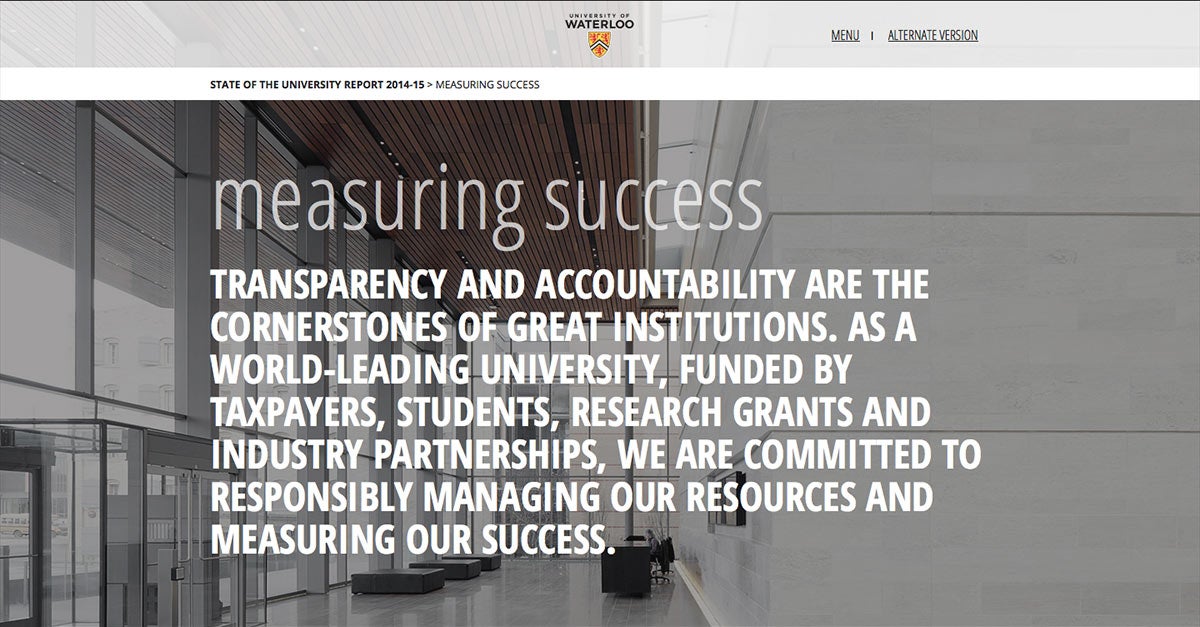The indicators presented here provide information by which to measure the health of the University overall. For more on these indicators, which inform the University’s governing bodies and provide the wider community with a statistical profile of the institution’s global impacts, see the University’s Performance Indicators or Strategic Plan.
- Consistent growth: Enrolment has grown year over year for the past decade. In fall 2013, full- and part-time undergraduates numbered 30,600, an increase of 53 per cent from 2003. Full- and part-time graduate students numbered 5,300, an increase of 126 per cent.
- Students stay: Waterloo has a first year retention rate of 92 per cent, compared to the North American average of 82 per cent.
- Global appeal: The percentage of international students in undergraduate and graduate programs has risen over the past decade, from five per cent and 22 per cent respectively in 2003/04 to 13 per cent and 35 per cent in 2013/14.
- Above average: In fall 2013, 33 per cent of new students entered with averages between 90 per cent and 94 per cent; 15 per cent entered with averages 95 per cent or above.
- Job finding: 97 per cent of Waterloo’s co-op students found jobs in 2013/14.
- Funding focus: In 2013/14, Waterloo attracted $180.9 million in research funding from government and industry, a 76 per cent increase above the amount granted in 2003/04.
- Federal support: Since 2003/04, research funds received from the federal government’s top support agencies for engineering, math and science; health; and social sciences and humanities have increased by 66 per cent, rising to $45.4 million in 2013/14.
- Financial accountability: See our 2014 Financial Statements.

